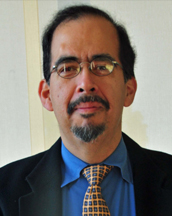The Nephrology Board held its fall meeting on September 9, 2025. Representatives from the American Society of Nephrology (ASN), the Renal Physicians Association (RPA) and the National Kidney Foundation (NKF) joined for a portion of the meeting*.
The following is a report of the fall meeting. Visit the ABIM Blog for reports of prior meetings.
ABIM Leadership Update*
Furman S. McDonald, MD, MPH, President and CEO of ABIM and the ABIM Foundation, discussed progress on ABIM’s strategic initiatives, including:
- Enhancements to the Longitudinal Knowledge Assessment (LKA®), such as the possibility of expanded eligibility, developing focused versions in some specialties that will launch in 2026 and exploring additional focused versions in other specialties for the future
- Expanding ABIM’s Assessment and Research Division with the appointment of Eric J. Warm, MD, MACP, inaugural Vice President of Research Strategy, advancing collaboration and research to link certification with improved outcomes
- Supporting early career physicians and international medical graduates (IMGs) with the needs-based certification exam fee assistance program and the competency-based medical education special consideration pathway for IMGs
- Recognizing board certified physicians at key milestones such as attaining more than 30 years of certification and an end-of-year wrap-up for LKA participants
- Advancing innovation in assessment through new technology and society collaboration
Asked about potential changes to LKA eligibility, Dr. McDonald noted that ABIM is considering expanding access to physicians interested in participating prior to their assessment due year.
Much of the conversation centered on the new pilot pathway for Accreditation Council for Graduate Medical Education (ACGME)-International and exceptionally qualified IMG candidates. The primary goals of the pilot are tied to its foundation in competency-based medical education, while removing barriers for physicians who demonstrate that they meet the same standards as their peers who completed accredited internal medicine training in the U.S. Attendees raised concerns about variable program standards, underprepared fellows and workforce readiness, with some participants questioning the scope and duration of the pilot. ABIM leadership emphasized that pilots are intended to test feasibility and scalability, that the ACGME “exceptionally qualified” designation has detailed criteria that are institutionally determined and that program directors remain the critical decision-makers in determining readiness for board eligibility.
ABIM Diplomate Professional Profile*
The Nephrology Board reviewed the status of ABIM’s Diplomate Professional Profile (DPP), a survey that ABIM Board Certified physicians are asked to complete every five years via the Physician Portal. Data gathered from the DPP will inform exam blueprint updates and help ABIM understand what physicians are doing in practice as well as practice trends.
Specialty Board members and guests discussed refining the DPP survey design by clarifying overlaps with critical care, capturing time spent on research and transplant, and recognizing roles such as hospital medicine, dialysis unit medical directors and program directors. They also highlighted the need to reflect the full range of practice in the discipline, including work across multiple settings and involvement in federal and hospital-based programs. Suggestions included expanding content on advanced practice providers, dialysis center work and aligning with external surveys from RPA and ASN to reduce duplication and enhance data utility.
Board members and guests were invited to provide feedback on the DPP and on what information would be most important to share with the broader nephrology and medical communities.
Health Equity*
ABIM remains firmly committed to advancing health equity, as reflected in a joint statement by the ABIM Board of Directors and the ABIM Foundation Board of Trustees dated June 2025. ABIM continues to work in the areas outlined in the Equity Statement: developing health equity content for assessments, working to ensure that assessments are fair and conducting research to advance assessment strategies. ABIM also maintains collaborations with medical specialty societies working to advance health equity. During this session, staff highlighted both the progress achieved and the challenges that remain in ABIM’s ongoing health equity efforts.
Initial Certification Procedures in Nephrology*
The discussion focused on evolving challenges in nephrology procedural training and certification. Participants raised concerns that the new procedural requirements for nephrology, such as home hemodialysis, may raise challenges for programs that had reduced or eliminated procedural training prior to the implementation of these new requirements.
Some participants noted systemic gaps in training oversight, while others pointed out that ABIM’s efforts have been collaborative and responsive. Looking forward, the group highlighted the importance of utilizing data sources, such as ABIM’s DPP and ASN’s fellow survey, to better understand practice patterns. It also emphasized the need for stronger collaboration between training programs and dialysis organizations to ensure adequate preparation for future nephrologists.
Transplant Nephrology*
Staff provided an update on ABIM’s work to explore the recognition of additional subspecialties with certification, including transplant nephrology following a process similar to that which interventional pulmonology is undergoing, which began with ACGME training program accreditation. The group discussed the feasibility of establishing a transplant nephrology certificate, recognizing that while possible, the process would be lengthy. If the transplant nephrology community wants a Board Certification pathway through ABIM, they would need to make that request. ABIM would not independently explore creating a new pathway.
Lorna Lynn, MD, Vice President of Medical Assessment Engagement, explained that other subspecialties have projected candidate numbers and gauged interest as part of the recognition process, emphasizing that sustainability depends on having a sufficient candidate volume; if thresholds are not met, the effort will not proceed.
Society representatives noted the need to expand the nephrology workforce to achieve this balance and observed that a focused assessment could appeal to specializing physicians over the general nephrology assessments. Dr. Lynn clarified that focused assessments are structured with 70% general content and 30% focused content.
Current Issues in Nephrology*
The group engaged in a broad discussion of current challenges and policy issues impacting the discipline. Key themes included:
- Ongoing concerns for IMGs: Rudolph A. Rodriguez, MD, Chair of the Nephrology Board, raised a question about potential travel bans and issues related to the duration of stay for IMGs. Dr. McDonald acknowledged broader systemic and policy shifts and their potential impact on the workforce. In September, ABIM submitted a letter to the U.S. Secretary of Homeland Security strongly recommending preservation of the current duration of status policy.
- Uncertainty surrounding the potential effects of Medicaid cuts: The group discussed concerns over potential Medicare and Medicaid cuts, underscoring the need to protect kidney patients, promote health equity and combat misinformation with credible information. They also discussed workforce shortages and the burden on community nephrologists.
Nutrition in Assessment*
The Specialty Board discussed the role of nutrition in patient care and assessment, emphasizing the importance of basing decisions to expand nutrition content in ABIM exams on sound scientific principles.
Staff noted that the amount of nutrition content in ABIM assessments varies across specialties; participants shared examples of the importance of nutrition in most kidney disorders, as well as in prevention. They highlighted challenges such as limited time and expertise for discussion with patients, patients’ access barriers to healthy food and the importance of tailoring education to patients’ needs. Emerging resources and toolkits were identified as opportunities to strengthen nutrition education and support for clinicians and patients.
Special Consideration Pathway for Exceptionally Qualified IMGs*
Now launched as a special consideration pathway pilot, graduates of an ACGME-accredited fellowship who have completed training in an internal medicine residency abroad may become eligible to achieve ABIM Board Certification in Internal Medicine as candidates for special consideration. Candidates must first become certified by ABIM in Internal Medicine before applying for a subspecialty exam. The discussion centered on opportunities to assess competency-based education earlier in training, with consideration of a two-year review for qualified individuals. More information can be found on the pilot program here.
Society representatives departed at this point in the meeting.
Candidates for the 2026 Nephrology Board
In June 2025, ABIM issued a notice about three openings for physicians on the Nephrology Board for terms beginning July 1, 2026. Dr. Rodriguez’s final term as chair will also end in June 2026. At the fall meeting, the group discussed the candidates they had interviewed and voted on six to recommend to the Council. ABIM expects to announce the final appointees, including the chair, publicly in July 2026.
Visit ABIM’s website for a complete list of current openings.
Subscribe to the ABIM Blog to stay on top of the latest news.
Are you interested in writing exam questions and shaping the future of ABIM’s assessments? Apply to openings on ABIM Governance and the Item-Writing Task Forces.
Join the Community Insights Network to share feedback with ABIM through focus groups, surveys, user testing and more.
*Indicates that society representatives were present for this agenda topic.




